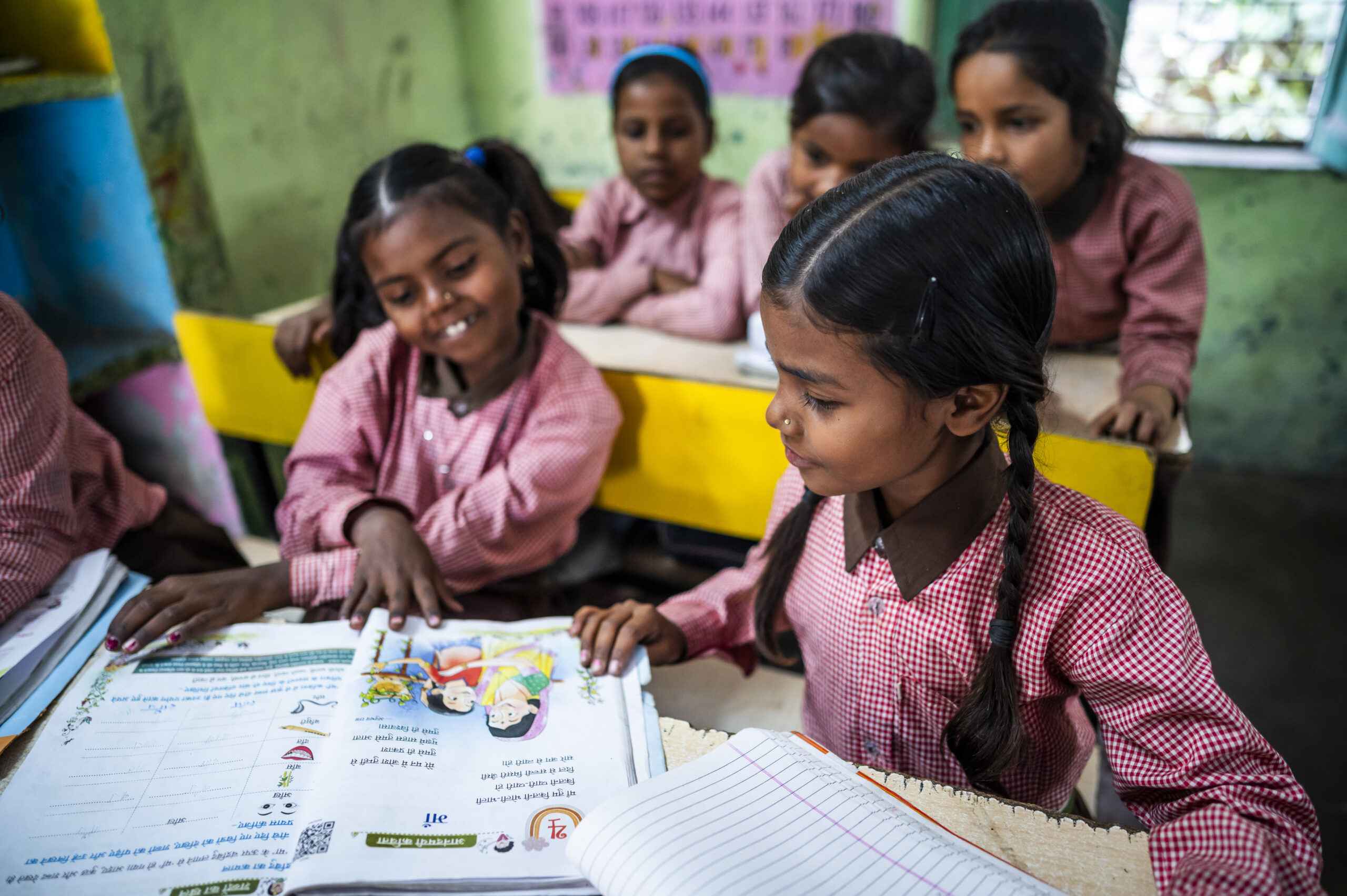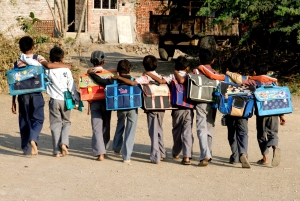India’s demographic dividend is at a defining juncture. By 2047, nearly a billion Indians will be of working age. A quarter of them will pass through our primary schools over the next two decades. To prepare, the nation must equip them with more than just access to education. Their potential hinges on a deceptively simple skill of Foundational Literacy and Numeracy (FLN) — the ability to read, write and count by the age of 10 — the fundamentals of national power and the very heart of the NIPUN Bharat Mission.
What makes NIPUN Bharat extraordinary is not just its scale, which is reaching 5 crore students, 17 lakh teachers and over 6 lakh schools, but its clarity of purpose: to lay a strong foundation, brick by brick, for every child. Like any lasting structure, a child’s education must rest on solid groundwork. Foundational literacy and numeracy are the base upon which all future learning is built—without them, the edifice of education cannot stand.
The consequences of lacking FLN skills reach far beyond the classroom. Nearly 50 percent of Indian graduates are considered unemployable due to poor comprehension and reasoning. India’s Economic Survey 2024-25 recognises foundational learning as key to future innovation and economic growth. Moreover, estimates suggest that it can raise GDP by 7.4 percent and cut extreme poverty in half if implemented effectively.
Four years in, the story of NIPUN is one of tireless public effort, local innovation and coordinated support resulting in building teacher capacity, strengthening classroom materials, improving monitoring systems and enabling data-driven governance.
The results are beginning to show. The 2024 Annual Status of Education Report (ASER) recorded a 7 percentage point improvement in both reading and subtraction skills in Grade 3—the highest in two decades. In Uttar Pradesh alone, reading proficiency rose by 12 points and subtraction by 14 points between 2022 and 2024, marking a significant turning point.
This positive trend is echoed in state-level assessments as well. In Madhya Pradesh, for instance, the share of Grade 2 students demonstrating grade-level proficiency in literacy and numeracy rose by nearly 10 percentage points—reinforcing that foundational learning reforms are taking root across the system.
States as the Catalyst of Change
The strength of NIPUN Bharat lies in states translating policy into classroom practice. Central Square Foundation (CSF) works as a catalytic partner to 11 State governments—from Uttar Pradesh to Telangana—to co-create scalable solutions, design teaching-learning materials and enable last-mile delivery through state and district implementation, turning intent into impact and the starting point of this journey is empowering educators.
Empowering Educators: Building a Culture of Continued Support
An education reform can only be deemed successful if, at the end of the day, it positively transforms the way teachers teach and students learn. CSF is supporting states to make this happen through cascaded training models that reach teachers at scale while keeping quality intact. In Assam, a three-tier cascade model trained over 1.19 lakh teachers, with a 1:40 trainer-to-teacher ratio to ensure personalisation. In Bihar, digital microlearning video modules were delivered weekly to 1,800 teachers and headmasters, supplementing in-person training.
In Uttar Pradesh, 4.76 lakh teachers were trained through face-to-face modules across 75 districts. The state also institutionalised mentorship with one DIET mentor and five Academic Resource Persons (ARPs) per block conducting 1 lakh school visits every month. Additionally, more than 40,000 Shikshak Sankuls were established for peer learning through monthly meetings, fostering continuous professional development.
In Haryana, CSF helped roll out the NIPUN Mentor mobile app – used by over 1,500 mentors for real-time classroom observation. Similar digital tools are now active in Madhya Pradesh (MP Shiksha), Telangana and Odisha, feeding into state dashboards and driving data-driven reviews at every level.
Empowering Students through Teaching-learning Materials
Along with training, good teaching needs good tools. In Uttar Pradesh, CSF supported the development, printing and on-time last-mile delivery of academic materials, including structured workbooks, teacher guides and reading kits to over 1 lakh schools.
In Assam, CSF helped institutionalise ‘TLM Melas’, cluster-level showcases and recognitions of teacher-led innovations and grassroots solutions. In Odisha, CSF strengthened the design and delivery of FLN materials, including teacher guides, student workbooks and TLM kits following a structured 28-week pedagogy. This year, a month-wise academic planner aligned with grade-wise learning outcomes was introduced, with cluster-level availability rising from 93 percent to 99 percent.
Empowering Bureaucrats: Turning Data into Action
Across states, assessment is emerging as a key driver of classroom transformation. Under NIPUN Haryana, CSF supported the state government in conducting a statewide sample assessment on foundational literacy and numeracy, covering over 24,000 students across 1,100 schools in 22 districts. The data provided a sharp, system-wide view of learning levels and enabled the design of focused, evidence-based interventions.
In Uttar Pradesh, assessment has been woven into the fabric of the system. Mentors conduct monthly spot checks covering 4.5 lakh students, feeding insights into everyday instruction. The third-party NIPUN Vidyalaya Assessment from December 2024 to February 2025 evaluated 64,688 schools, with 48,061 declared NIPUN for the academic year 2024–25.
Community Participation: Making Student Learning a Shared Mission
States are moving foundational learning beyond school walls, into homes, panchayats, public spaces and school management committees.
In Bihar, community participation is being actively nurtured through NIPUN Samvaad monthly e-magazines that showcase local success stories and best practices. Regular parent teacher meetings have been institutionalised with an annual calendar and clear guidelines, helping headmasters and teachers facilitate meaningful conversations around student progress. Village leaders or mukhiyas have also been engaged, with 20 Gram Sabhas held to raise awareness and boost attendance in foundational learning grades.
In Madhya Pradesh, the state is making community engagement visible and vibrant through FLN Melas, Fun Saturdays and Bal Sabhas—initiatives that bring parents into the learning journey and publicly celebrate student progress. Similarly, in Odisha, the state has rolled out NIPUN Melas, a state-wide awareness campaign at the cluster, block and district levels to drive community engagement and stakeholder commitment to early learning.
This focus on community involvement is being echoed at the district level in other states as well. In Uttar Pradesh, CSF districts of Gorakhpur, Ghaziabad, Jhansi, Agra, Aligarh and Sitapur have institutionalised monthly parent-teacher meetings to deepen parental engagement. Over 2 lakh parents have participated so far, contributing to a noticeable rise in student attendance and involvement.
The District as Doer: Localising the Mission
Learning improves when policy changes from the top are delivered by the last-mile system at the district.
In six districts of Uttar Pradesh – Agra, Aligarh, Ghaziabad, Gorakhpur, Jhansi and Sitapur – we supported the District administration in strengthening foundational learning through ~1,600 joint visits with Academic Resource Persons, 9,500 student spot assessments and intensive teacher training in collaboration with DIET and State Resource Groups. Regular review meetings and workshops sharpened ARP skills, while innovative systems like Gorakhpur’s ARP rotation ensured every school received support. Additional initiatives included BSA-led teacher sessions in Ghaziabad and a call centre in Sitapur to monitor progress.
In Dhenkanal, Odisha, CSF supported the institutionalisation of monthly FLN review meetings, which rapidly increased classroom observation compliance from 20 to 98 percent. District mentoring expanded its reach to 90 percent of schools through joint visits and real-time dashboards. With robust last-mile tracking, 99 percent of FLN materials were delivered on time. Additionally, the launch of a four-week parent-led FLN Summer Course engaged 18,000 parents and 16,000 children via WhatsApp videos, driving a statewide scale-up and positioning Dhenkanal as a model district for community-driven foundational learning.
A Tipping Point in Sight
NIPUN Bharat is still unfolding its full promise. The mission has built strong momentum and real, lasting change in foundational learning is within reach only if we continue to build on this progress with focus, collaboration and commitment.
As the NIPUN Bharat Mission progresses, it is important to remember that this is not just a policy on paper. It is a living, breathing effort—real for the teacher working daily to unlock a child’s potential. Real for the mentor traveling to schools, guiding and supporting educators. Real for the parents who are seeing their child’s learning journey take shape. These are the moments where change takes root, shaping the future one classroom at a time.



